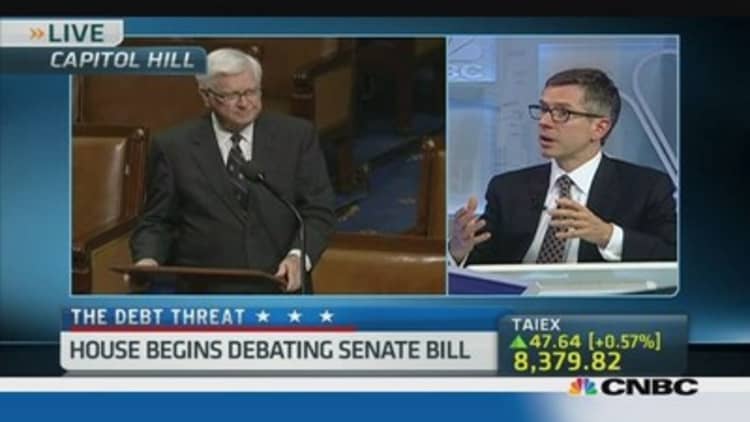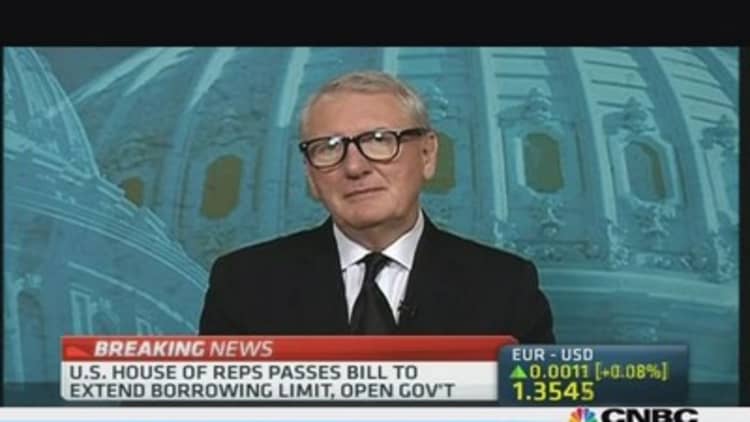The crisis in Washington has probably hurt the U.S.'s credibility overseas, but that doesn't mean big holders of Treasurys such as China and Japan will look to significantly diversify away from U.S. government bonds, analysts say.
The bottom line? Large, liquid alternatives to the world's biggest government debt market are still few and far between, they add.
(Read more: Senate passes debt deal; bill heads to the House)
"One problem in looking for alternatives is that the U.S. Treasury market is still the biggest and the deepest market for safe investments in the world," said Richard Jerram, chief economist at the Bank of Singapore.
"The other problem, in the case of China, is that if you want to manipulate your currency against the dollar you are a forced buyer of U.S. dollars and U.S. assets and in turn, Treasurys," he added, referring to China's policy of managing its currency.

The U.S. Senate late on Wednesday passed a last-minute deal to avert a damaging debt default and reopen the government after a partial shutdown that began more than two weeks ago.
(Read more: Markets ready to shift focus back to economy, earnings)
China and Japan held $1.28 trillion and $1.14 trillion in Treasurys, respectively in July 2013, according to latest data from the U.S. Treasury.
Both Asian countries had stepped up pressure on Washington in the past two weeks to avoid a debt default – a scenario that analysts believe would have wreaked havoc on the world economy and sparked another crisis in financial markets.
(Read more: )
There have been media reports this week that China's State Administration of Foreign Exchange, the body that handles the country's $3.66 trillion of foreign exchange reserve, is looking to diversify into real estate investments in Europe.
Russia, another big foreign holder of Treasurys, meanwhile was reported warning this week that it could step up its search for alternative investments if the U.S. did not find a way to avoid a default.

(Read more: What follows this Congressional deal?)
"There is a long-term reputational damage from the crisis, but there is no substitute for U.S. Treasurys," Johanna Chua, chief economist for Asia at Citi told CNBC Asia's "Squawk Box."
"You have to be realistic. We can look at Europe as a viable alternative but it also has its problems. You can look at the , but it's not fully convertible yet," she added.
(Read more: China's yuan flexes muscle as US crisis rattles on)
According to the Securities Industry and Financial Markets Association, there was $38.7 trillion worth of outstanding U.S. government bonds at the end of the second quarter.
While yields on short-term Treasury bills have spiked this month amid jitters about a potential default, the benchmark 10-year Treasury yield has been relatively stable around 2.65 percent – a sign that investors remain comfortable holding U.S government bonds.
"People have a lot of confidence in U.S. institutions relative to the alternatives," Randy Kroszner, professor of economics at the University of Chicago's Booth School of Business and a former Federal Reserve governor, told CNBC.
"We've just seen the fiscal follies in the U.S., but look what's happened to the 10-year rate. Ultimately people have faith in the institutions to bring us back from the brink," said Kroszner.
— CNBC.Com's Dhara Ranasinghe; Follow her on Twitter @DharaCNBC


